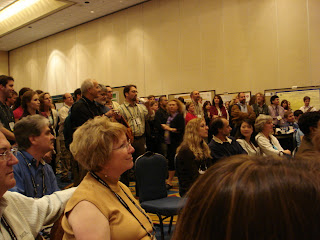A few weeks ago, I was at a one day workshop on biology education. One of the speakers was Jay Phelan, author of a book called Mean Genes. He argued in his talk that making subjects relevant to students was critically important, because it made material easy to learn. While I was listening to him, and the talks aftwerwards, I scribbled down, "Relevance is overrated." I talked to him at lunch about it, and we had a good discussion about it. I agreed with him to a point; a lot of things that I've done in teaching were also things he had done. For instance, we both use hair styling to discuss protein folding and chemical bonds holding proteins together.
My concern is that when people think of "relevance" is that people think of relevance in the most narrow, applied terms possible. In biology, this usually means medicine; maybe environment. To me, this seems like an incredible loss of great material.
For instance, in my general biology classes I talk about a little lizard named Cnemidophorus uniparens. Is it relevant to the lives of, say, introductory biology students, many of whom will only take one other biology course in their entire undergraduate career, that this lizard species has no males, and females perform a behaviour called pseudocopulation where one female acts like a courting and mating male? I don't think it's relevant -- but is really cool.
Neurobiology is an area that many people feel has immediate relevance to them, because it explains something about how they think and behave. But I think it's always important to introduce people to things that they might not think about as "relevant," for no other reason than they are cool, or interesting, or beautiful.
 I went to the FUN social at the 2007 Neuroscience meeting in San Diego this year. And it was quite a sight. I talked to a few people who said this was far and away the largest FUN gathering that we'd had -- about a third bigger than anyone expected.
I went to the FUN social at the 2007 Neuroscience meeting in San Diego this year. And it was quite a sight. I talked to a few people who said this was far and away the largest FUN gathering that we'd had -- about a third bigger than anyone expected.